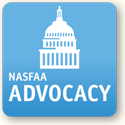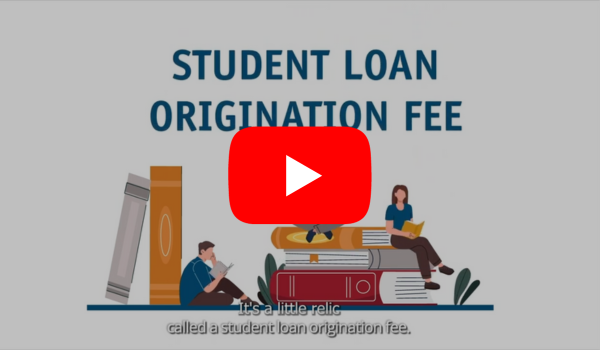Your Advocacy Makes A Difference
 Call to Action: Tell Congress to Extend the Gainful Employment/Financial Value Transparency Reporting Deadline
Call to Action: Tell Congress to Extend the Gainful Employment/Financial Value Transparency Reporting Deadline
Join NASFAA in asking Congress to delay the Gainful Employment/Financial Value Transparency institutional reporting requirements, currently due on October 1, until July 2025. With the unprecedented impact the FAFSA delays and errors have had on financial aid offices, delaying the reporting deadline will enable financial aid administrators to focus on helping ensure their students have access to a postsecondary education. With the current reporting deadline approaching in a few months, it is critical that your members of Congress hear from you about why an extension is necessary. Visit NASFAA’s Call to Action page to learn more about how to contact your congressional delegation.
Critical Student Aid Funding Could Be Slashed: Tell Congress How Vital These Programs Are to Your Students
On June 26, the House Labor, Health and Human Services, Education, and Related Agencies (Labor-H) Appropriations Subcommittee released its education funding proposal for fiscal year 2025, which calls for significant cuts to federal student aid programs that support millions of students across the nation. The bill would cut funding in half for the Federal Work-Study and Federal Supplemental Educational Opportunity Grant programs and flat-fund the maximum Pell Grant for the 2025-26 award year. The House Appropriations Committee on July 10 marked up and advanced the bill, which now heads to the House floor. It is critical that your representative hears from you about how these cuts will impact your students. Get involved in NASFAA’s advocacy campaign to protect student aid funding!
Tell Congress to Eliminate Student Loan Origination Fees
Student loan origination fees, the hidden student loan tax, increase the cost of borrowing and cause confusion for students and families who try to borrow only what they need. Join NASFAA’s advocacy efforts to eliminate origination fees by following the steps below.
- Watch and Share: NASFAA’s Video on Student Loan Origination Fees
- Read: NASFAA’s Issue Brief on Student Loan Origination Fees
- Advocate: Encourage your members of Congress to support the Student Loan Tax Elimination Act. Find your Representative here and your Senators here.
Join NASFAA On Capitol Hill
Whether you're new to federal-level advocacy or an experienced advocate, take an opportunity to learn more about NASFAA's advocacy efforts and how you can get involved. It's easy to get started; just follow the five simple steps below!
Five Simple Steps to Make a Difference
- Stay Informed: Review NASFAA's advocacy positions and NASFAA task force reports, and continue to check out NASFAA's Today's News, Facebook, and Twitter for updates on what's happening in Washington, D.C.
- Build Relationships: Touch base regularly with the education aides who work for your Representative and Senators. Provide them with information and data on how their constituents—the students and families you serve—benefit from student aid programs. You can use your institutional data to provide specific information about the students you serve and data compiled by NAICU to provide aggregate information about the distribution of student aid funds by congressional district and state. Utilize NASFAA's advocacy resources to make an even stronger case. You can find contact information for your member of Congress here: Find Your Representative in the U.S. House of Representatives and Contact Information for U.S. Senators.
- Use Your Voice: When the time comes, write letters, call, and send emails to your delegation and to committee members expressing support or concern for proposed legislation. You should reach out to both your U.S. Representative and your state's two U.S. Senators.
- Get Students Involved: Students can provide powerful personal stories about how they are affected by student aid policies.
- Share Your Progress: Update NASFAA on your lawmaker correspondence so we can better work with your congressional delegation.
Advocacy Network
NASFAA's Advocacy Network will work to organize and inform NASFAA members regarding opportunities for advocacy with lawmakers on important and timely higher education priorities. Members of the Advocacy Network will assist NASFAA staff in communicating the value of the federal financial aid programs to policymakers and the implications of potential proposed modifications.
Advocacy Pipeline
NASFAA's Advocacy Pipeline is an ongoing advocacy effort designed to bring NASFAA's elected leaders and other members to D.C. to share on-the-ground perspectives with policymakers. Throughout the year, small groups of NASFAA members come to Washington to participate in direct advocacy with Congressional offices. During the COVID-19 pandemic, NASFAA has continued its advocacy pipeline program in a virtual format.




